ADA Standards of Care—2023
American Diabetes Aassociation's clinical practice recommendations for diabetes.Medication Recommendations
For Type 1 and Type 2 diabetes, focusing on individualized care and cardiovascular/renal health considerations.Diabetes Management
Pharmacologic management of glycemia in diabetes.Disease State
Generalities Clinical Practice Guidelines
A set of recommendations based on systematic review of evidence.
Aims to assist practitioner and patient decisions about appropriate health care for specific clinical circumstances.
Developed by experts through a rigorous process, considering the quality of evidence and the balance of benefits and harms.
Evidence-based Guidelines
Systematic Reviews: Incorporates findings from systematic reviews of research.
Randomized Controlled Trials (RCTs): Utilizes high-quality evidence from RCTs, including multicenter trials and meta-analyses.
Cohort Studies: Includes supportive evidence from well-conducted cohort studies.
Research-Based Evidence: Recommendations are grounded in research findings, evaluated for quality and relevance.
Consensus Guidelines
Expert Committee: Multidisciplinary team indicates significant role of expert opinion.
Annual Updates: Regular revisions incorporate latest consensus and research.
Invitation for Comments: Openness to diverse opinions aids consensus building.
Evidence Grading: Presence of grades like "Expert Opinion" suggests consensus where evidence is limited.
Evidence Grading
A: High-quality evidence from well-conducted, generalizable randomized controlled trials, including multicenter trials and meta-analyses with quality ratings.
B: Supportive evidence from well-conducted cohort studies.
C: Supportive evidence from poorly controlled or uncontrolled studies.
E: Expert consensus or clinical experience.
Current Guidelines in 2023
Pharmacologic Approaches to Glycemic CareUS STATISTICS AS OF 20231
scope & guidelines
Comprehensive Guidance
For managing type 1, type 2, and gestational diabetes, plus prediabetes.Evidence-Based
Built on the latest scientific research and clinical trials.Diagnosis and Treatment
Offers strategies for both youth and adults.Prevention Focus
Aims to prevent or delay type 2 diabetes and associated comorbidities like CVD and obesity.Minimizing Complications
Addresses approaches to reduce complications and improve health outcomesFor Health Care Professionals
Ensures providers, especially in primary care, deliver optimal diabetes care.T1DM
UPDATES to the 2023 Guidelines
T2D
T2D
Recommendation 9.2: Preference for insulin analogs or inhaled insulin over injectable human insulins to minimize hypoglycemia risk in most adults with type 1 diabetes.
Recommendation 9.3: Addition of early use of Continuous Glucose Monitoring (CGM) for adults with type 1 diabetes.
Recommendation 9.4: Consideration for the use of Automated Insulin Delivery (AID) systems for adults with type 1 diabetes.
Recommendation 9.5: Expanded education for adults with type 1 diabetes on modifying insulin dose based on glycemia, trends, and sick day management.
Recommendation 9.6: Suggestion to prescribe glucagon for individuals taking insulin or at high risk for hypoglycemia.
Recommendation 9.7: Emphasis on regular treatment plan evaluation for individuals with diabetes to ensure individualized goals are met.
Recommendation 9.14: Highlighting the importance of early combination therapy for adults with type 2 diabetes to achieve individualized treatment goals.
Recommendation 9.15: Pharmacologic therapies should address both individualized glycemic and weight goals in adults with type 2 diabetes without cardiovascular and/or kidney disease.
Recommendation 9.16: Consideration of additional glucose-lowering agents for adults with type 2 diabetes not meeting their glycemic goals.
Recommendation 9.17: Importance of treatment intensification and combination approaches for weight management aligned with glycemic goals in adults with type 2 diabetes.
Recommendation 9.18: Prioritization of glycemic management agents that reduce cardiovascular and kidney disease risk in adults with type 2 diabetes and established/high risk of atherosclerotic cardiovascular disease, heart failure, and/or chronic kidney disease.
Recommendation 9.19: Recommendation of SGLT2 inhibitors for glycemic management and prevention of heart failure hospitalizations in adults with type 2 diabetes and heart failure.
Recommendations 9.20 and 9.21: Individualized recommendations for individuals with type 2 diabetes and chronic kidney disease.
Recommendation 9.22: Consideration of insulin therapy at any stage irrespective of other glucose-lowering medications in certain circumstances.
Recommendation 9.24: Reassessment of insulin dosing upon addition or dose escalation of a GLP-1 receptor agonist or a dual GIP and GLP-1 receptor agonist.
Recommendation 9.25: Broadening of glucose-lowering agents justified for additional benefits to treatment goals.
Recommendation 9.26: Suggestion to reassess the need and/or dosages for glucose-lowering agents associated with higher risk of hypoglycemia when initiating or intensifying insulin treatment.
Recommendations 9.28 and 9.29: Guiding principles of care for people with obstacles impeding diabetes management.
Figure 9.1: Terminology change from "hybrid closed-loop technology" to "automated insulin delivery systems."
Table 9.1: Terminology updates and counseling information about potential ileus (subcutaneous semaglutide) and dual GIP and GLP-1 receptor agonist treatment.
Tables 9.3 and 9.4: Changes in cost for several agents.
Dynamic Diabetes Management
Treatment methods and guidelines continually evolve.
Focus on improving outcomes and quality of life.
Reflects advancements in research and understanding.
2022

2015


- American Diabetes Association. Statistics About Diabetes [Internet]. Arlington (VA): American Diabetes Association; updated 2023 Nov 2; cited 2024 Mar 19]. Available from: https://www.diabetes.org



